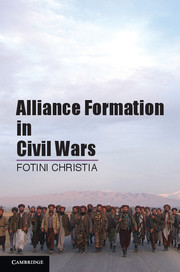Book contents
Conclusion
Published online by Cambridge University Press: 05 December 2012
Summary
As late as September 10, 2001, anyone asking an average American to locate Afghanistan on a map most likely would have gotten a blank stare in response. Afghanistan was a far-flung, long-forgotten place, as irrelevant and passé as the Cold War. It had made some headlines in the late 1990s for its Islamist Taliban leadership and their repressive and regressive human rights policies, but all that mostly resonated with area experts and was lost on the broader public. Osama bin Laden and the 9/11 attacks changed all that. They brought Afghanistan to every American home and, over the next decade, more than 100,000 American troops to Afghan soil.
True to the theme of this book, this recent Afghan war started with a defection. In its three years of uninterrupted reign over 90 percent of Afghanistan since the end of the 1998 intra-mujahedin war, the Taliban had consolidated their hold on state power by wooing into their ranks commanders, technocrats, and even some of the old mujahedin leadership against whom they had fought brutally in the not-so-distant past. But their hold proved precarious and was under threat as soon as it became clear that they could not avert the U.S.-led invasion in support of the Northern Alliance, prompted by the 9/11 attacks. In light of that invasion, the Taliban had issued a fatwa, calling their people to arms against the infidels:
Afghanistan's religious scholars express their condolences for the losses in America and they are hopeful that America will not attack Afghanistan and will instead work with patience and carry out an extensive and thorough investigation.…If America refuses to accept the content of this fatwa and tries to invade Afghanistan, then according to Shari'a law, the scholars will issue the below order [for jihad against the U.S.]…. According to all Islamic jurisprudence, when non-Muslims prepare to invade an Islamic country then Jihad will be proclaimed on them. [Detailed reference to list of relevant verses in Qur'an and Hadith]…When non-Muslims are about to occupy an Islamic country and that country does not have the capacity to defend itself, then Jihad becomes compulsory to all Muslims in the world. They all have to come and fight in order to rescue that Islamic state.…During the American invasion, Muslims who cooperate and spy for Americans, no matter if they are Afghan or not, they will be labeled as foreign invaders and their execution will be certain.
- Type
- Chapter
- Information
- Alliance Formation in Civil Wars , pp. 230 - 246Publisher: Cambridge University PressPrint publication year: 2012



